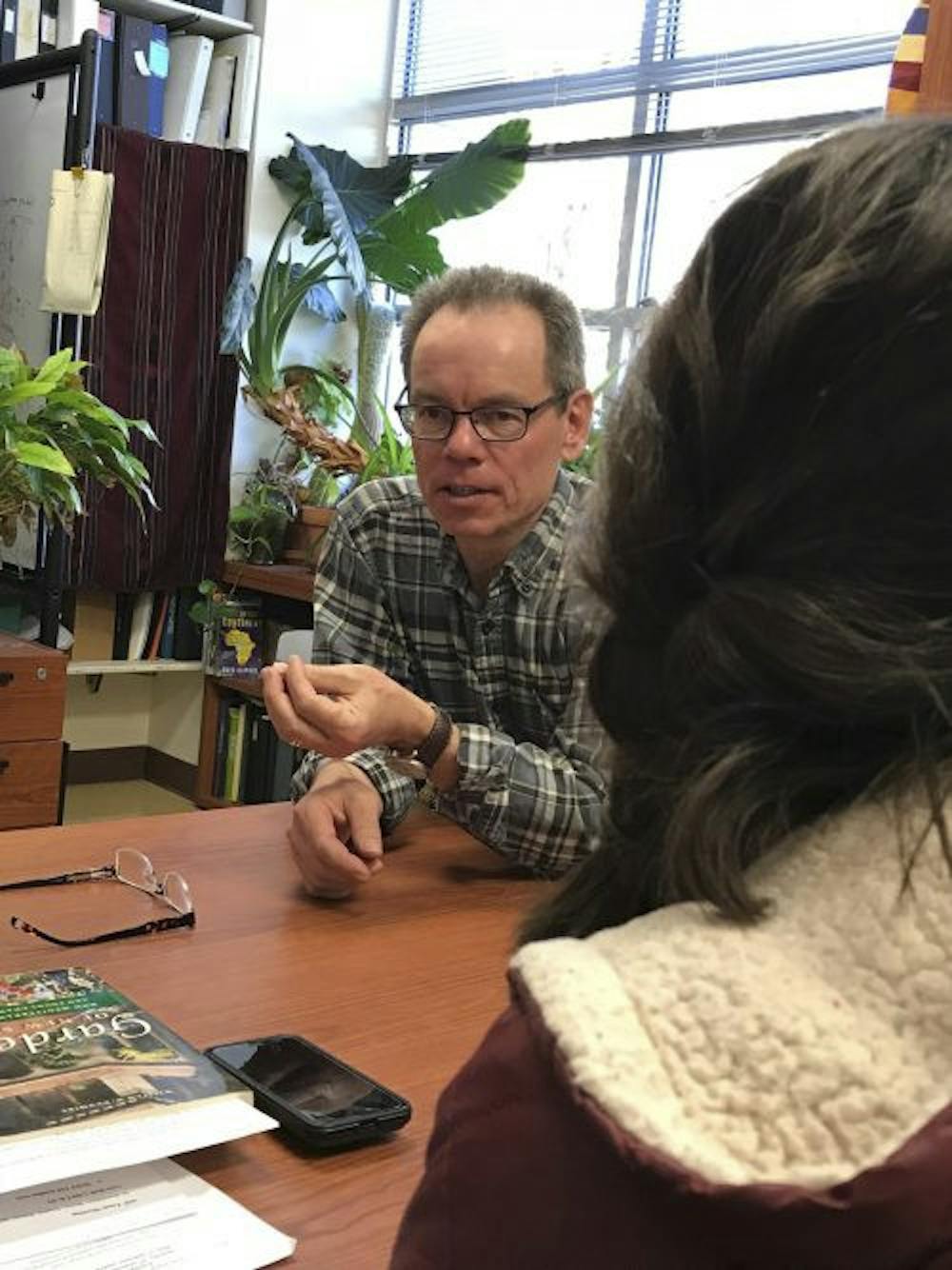Editor’s Note: This story was originally published on Feb. 13 in the New Mexico News Port, under the headline, “Sustainability Studies Program had humble beginnings,” written by Gabriela Garcia-Huff, Brianna Mortensen and Jaden Torres. This is part of our project to help connect the Daily Lobo audience to more members of our community.
The Sustainability Studies Program was conceived in 2002 during an Earth Systems Engineering Convention held in Boulder, Colorado. Attendees were encouraged to think of how to best apply sustainable principles to their curriculum. This event inspired a “light bulb moment,” said Bruce Milne, professor of biology and director of the Sustainability Studies Program at the University of New Mexico.
“One by one, 93 people all had to say what they were going to do as a consequence of this conference,” he said. “I’m going to go home and make my house green and sustainable, and then I am going to make my curriculum green and sustainable.”
Milne went home and kept his promise. He added solar panels to his house, installed native plants inside his home and in his garden, began conserving water and started walking to school, which he has done every day for 30 years now.
He had not forgotten about the other half of his statement. He had the idea for the addition of sustainability course material, but he was not sure how to act on it yet. Incorporating sustainability into biology proved to be a lot more difficult than he anticipated.
“One day, I was out raking leaves in my yard, and another light bulb went off,” Milne said. “I could create a sustainability studies program.” He wrote a single-page proposal and sent it to the systems provost. He received the green light, but had no source of financial support.
The program took three years to develop. “I got really into it,” he said. “We had to write big proposals for what the courses would be; we had to negotiate with twenty some odd departments. Eventually, we got funding from the state.”
After running a few pilot classes within the biology program, sustainability courses were added to the UNM catalog in 2007. “The minor degree was created,” Milne said. “From the beginning it was designed to serve students from all majors.”
The 2017-18 school year marks the tenth anniversary of the program. Milne defined sustainability in its most basic terms: providing humans with the basic needs of food, shelter, transportation, energy, water, health and democracy.
Brandon Ortiz, who graduated last year in Architecture and Sustainability Studies, said he took the ideas he learned from the program and adapted them to suit his field of study and cultural background. As a part of his senior capstone project, Brandon created a detailed manual on how to build homes using indigenous techniques from Taos Pueblo.
“I want to do this for the cultural identity,” he said. He now applies this concept in his career as an architect and to advocate for the sustainable traditions of his Taos community.
UNM graduate Christina Hoberg shares a similar story. She took her passion for community farming and created a women and children’s farm cooperative. The group meets once a week to cultivate their crops while sharing experiences with their created community.
Get content from The Daily Lobo delivered to your inbox
Hoberg said she hopes to impart a love and understanding of nature to the children in the group, with the idea that, “sustainability is that you have to be in balance with what you’re taking from our planet, and what you’re giving back. It’s a reciprocal relationship”.
As the UNM Sustainability Program continues to produce graduates, Milne said it is looking to expand into a possible major degree program. Milne credits lecturers Jessica Rowland and Eileen Shaughnessy with many of the successes of the program thus far and helping to develop plans for the future.
“I wake up in the morning and there is nothing else I want to do,” Milne said.
Gabriela Garcia-Huff, Brianna Mortensen and Jaden Torres can be contacted on Twitter at @ggarciahuff, @BriMortensen and @JTorresNM.






